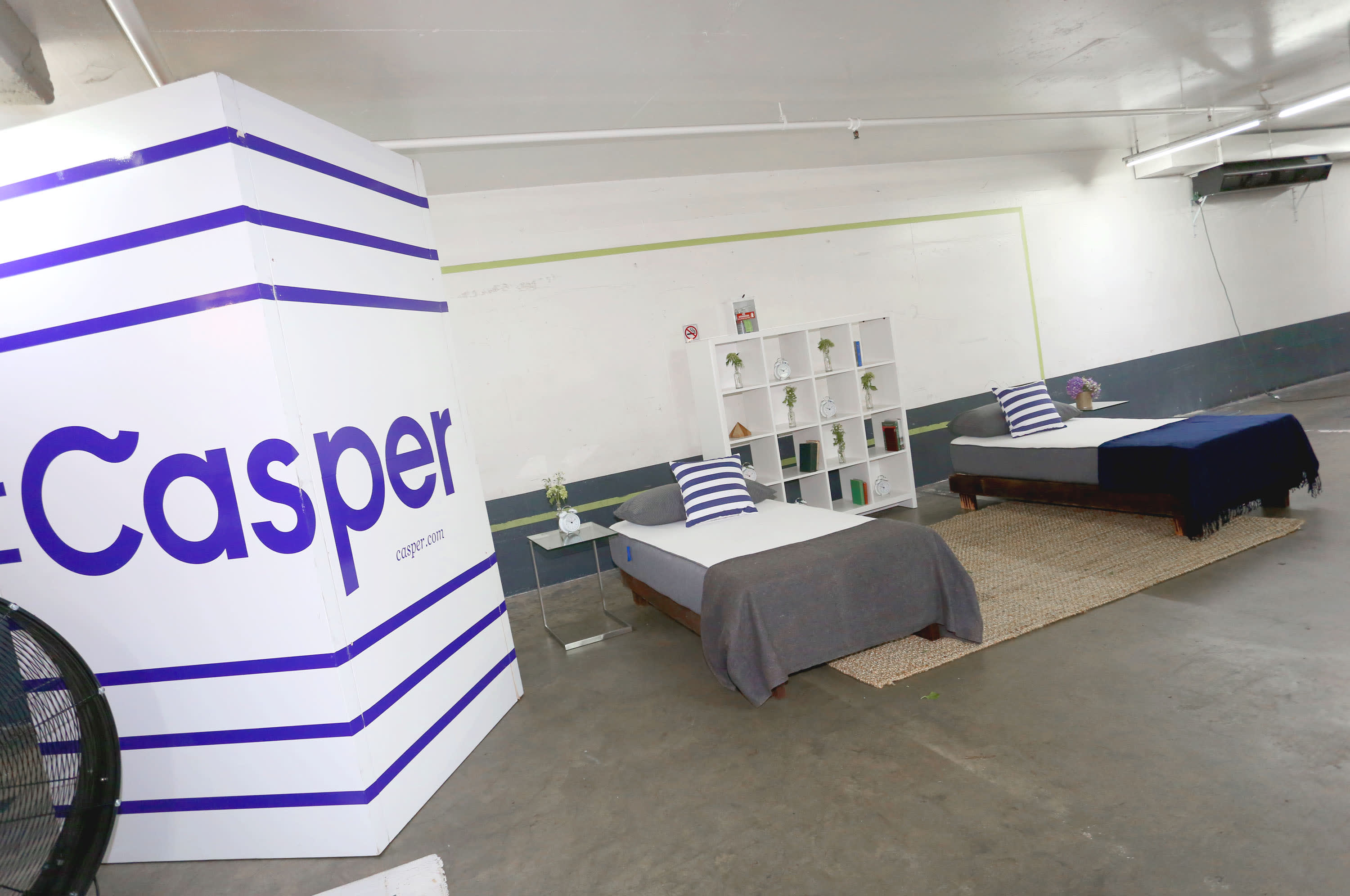A view of the Casper mattresses during Casper’s LA celebration at Blind Dragon on July 9, 2015 in West Hollywood, California.
Rachel Murray | Getty Images
Mattress firm Casper priced its initial public stock offering at $12 a share on Wednesday evening, Dow Jones reported, a significant haircut to its prior price talk.
The firm announced it had cut the expected price range Wednesday morning from $17 to 19 a share to $12 to $13 a share in an offering of 8.4 million shares.
Investors push back against money-losing companies
On one level, Casper represents a push-back against companies that are losing money and do not have any imminent path to profitability. “This is reflecting the attitude toward money-losing companies, not specifically to IPOs,” Jay Ritter, a professor from the University of Florida and an IPO expert, said on CNBC.
Santosh Rao, who researches IPOs for Manhattan Venture Research, agrees. “The days of growth at any cost are over. You either have to be profitable, or take a haircut,” he told me.
Selling direct to consumer is challenging
On another level, there is the challenge of selling in the direct-to-consumer space. “These companies are spending a lot of money to get market share,” Kathleen Smith from Renaissance Capital said. “IPO investors are concerned about the cost of acquiring new customers and what happens when they stop spending a lot of money.”
Lots of competition
Finally, there is the intensity of the competition. There are well known, old-school firms like Tempur Sealy, which is already profitable, and lesser-known competitors like Purple Innovations, a direct-to-consumer company, that is also profitable, though barely.
Hopes that Casper can sell tons of bedding supplies is also a bit of a stretch, according to Dan Primack at Axios. “You need to be able to sell the sheets and the pillows, and there’s not that much of a differentiator, and if you’re going through Amazon or if you’re searching on Google, they’re really reliant on other people’s platforms.”
The IPO market is hot in 2020
You can’t blame Casper’s haircut on a poor IPO market. The Renaissance Capital IPO ETF, a basket of the most recent 60 or so large IPOs, opened today at an historic high. Former laggards like Lyft, Uber, Zoom and Pinterest have been performing well in 2020.
Even the most recent entrants are also being greeted enthusiastically. The last three IPOs are all trading up:
Last three IPOs (Jan. 30, from IPO price):
One Medical, up 71%
Arcutis Biotherapeutics, up 45%
Reynolds Consumer, up 17%
Kathleen Smith noted that these companies were priced more reasonably. One Medical priced at the low end of the range. Reynolds priced in the middle.
Another IPO to watch, Smith says is PPD, scheduled to price tonight and trade tomorrow on the NASDAQ. PPD provides research services for biotech firms–they run the trials for the companies.
“The good news is, it’s very profitable, and it has decent growth. The question, as always, is valuation.”
